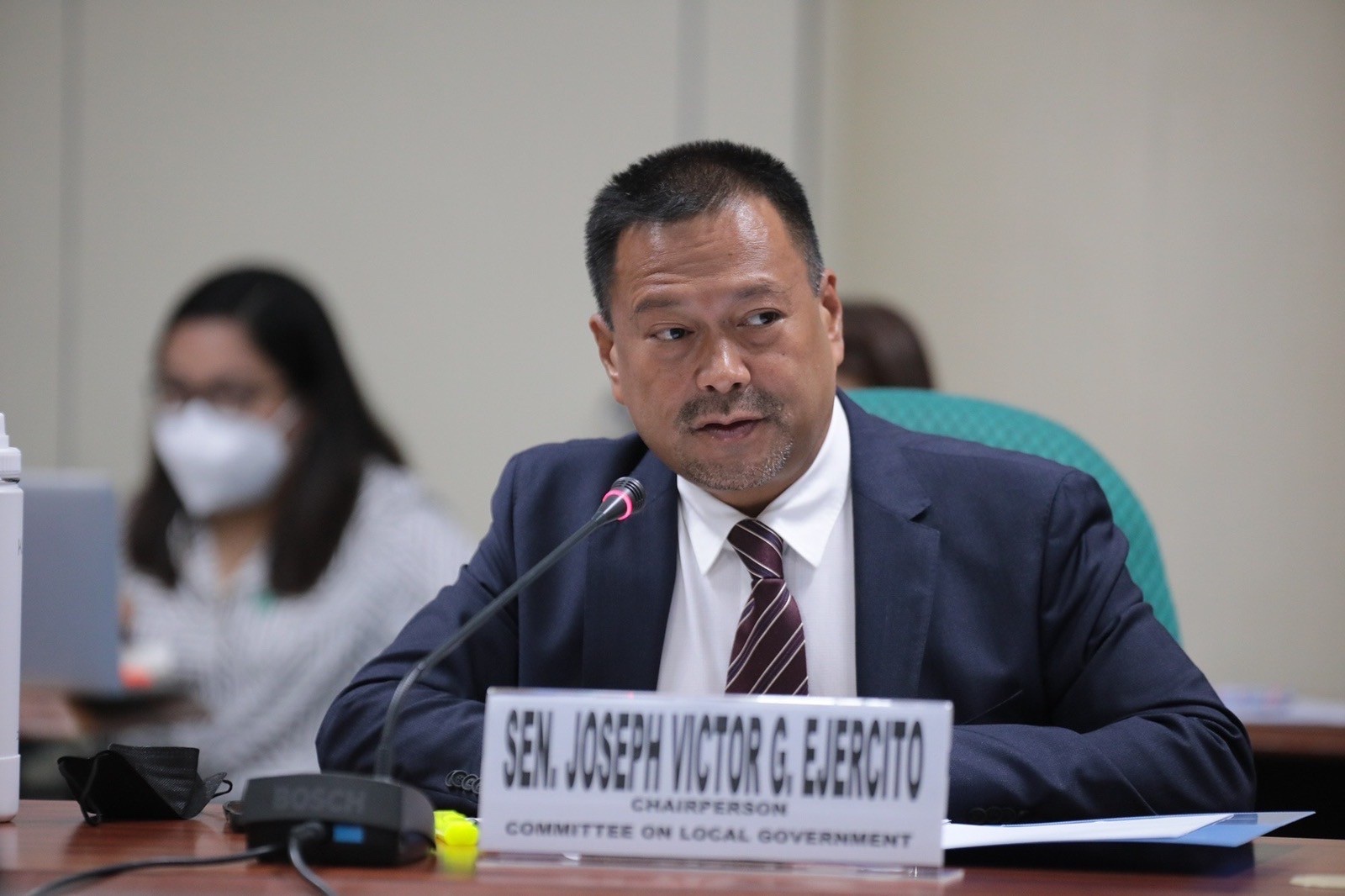Senator JV Ejercito on Monday expressed his disapproval of proposed measures such as the Anti-Lane Splitting Bill and Motorcycle Rider Safety Act saying they could potentially worsen traffic and affect courier and delivery services that help the economy.
Ejercito, a motorcycle rider himself, said should these bills become law, they could be more detrimental to riders and discriminate against them.
“Rest assured that the two bills — the Anti-Lane Splitting and mandatory membership in organizations from Congress
— I will not support (them) and make sure it doesn’t pass in the Senate,” he said.
House Bill 1419 seeks to penalize motorcycle riders who attempt to pass between rows of vehicles on the same road, especially during heavy traffic.
Ejercito explained that lane splitting lessens the exposure of motorcycle riders to pollution, bad weather, and other dangerous elements by reducing the time they spend in traffic.
“These could more harmful to motorcycle riders if we will prohibit lane splitting. There are countries that legalize lane splitting because based on their studies, it become safer for motorcycle riders to do lane sharing,” he said.
“Other than prohibiting lane splitting, it would be better for the government to develop guidelines on how we can implement safe lane splitting or lane sharing. Let us always focus on how to make our road safe,” he added.
The lawmaker from San Juan said the proposed measure discriminates against motorcycle drivers, arguing that most riders cannot afford to buy larger vehicles and other forms of vehicles are not subject to the same regulations.
Moreover, he said the imposition of new regulations and penalties exclusive to motorcycles will have a heavier impact on economically disadvantaged riders.
“For a rider that has limited capabilities, P5,000 could have been spent for his family — food; rentals; or monthly dues for loaned motorcycles,” Ejercito said.
Meanwhile, House Bill 32 aims to require motorcycle riders to join accredited clubs prior to vehicle registration and license renewal.
Ejercito said this proposed requirement on motorcycle riders will inevitably transfer the responsibility of law enforcement from traffic enforcers to motorcycle clubs.
Moreover, such a requirement will impose an additional layer of bureaucracy and new expenses on the part of motorcycle riders, he said.
“Let’s not punish our fellow riders with unnecessary expenses. Our economic situation is already difficult with the ongoing pandemic,” Ejercito said.
The senator, instead, called on Congress to prioritize amendments to Republic Act 11235 or the Motorcycle Crime Prevention Act.
Senate Bill 159, which Ejercito filed as one of his priority bills for the 19th Congress, seeks to replace the mandatory installation of oversized license plates in front of motorcycles with a radio-frequency identification scanner system.
The measure also aims to reduce the penalties stated in RA 11235 and align them with the penalties imposed on four-wheeled vehicles.
“By using RFID scanners, we can avoid discrimination among riders and avoid inconvenience,” he said.
